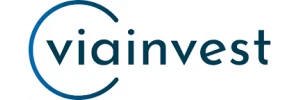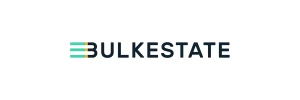Company Overview and Background in the United States
EarnIn Inc., formerly known as Activehours Inc., stands as a significant player in the burgeoning financial technology sector, specifically within the earned wage access (EWA) market in the United States. Incorporated as a California corporation on May 5, 2013, the company launched its mobile application in May 2014, quickly becoming a go-to resource for individuals seeking early access to their earned but unpaid wages. Headquartered at 391 San Antonio Road, Mountain View, CA, EarnIn has steadily grown its footprint, serving over 3.8 million users and facilitating more than USD 15 billion in wage access since its inception.
As a privately held entity, EarnIn has secured substantial funding, totaling USD 190.1 million from prominent investors such as Andreessen Horowitz, Matrix Partners, Felicis Ventures, DST Global, and Spark Capital. This financial backing has enabled its growth and innovation. The core of EarnIn's business model revolves around its distinctive voluntary "tip" system. Unlike traditional lenders, EarnIn does not charge mandatory interest or fixed fees for its primary "Cash Out" service. Instead, users are offered the option to leave a tip for the service provided, with the advance repayable upon their next scheduled payroll date.
EarnIn's target demographic primarily includes hourly and gig workers who often face short-term cash flow challenges between paychecks. The company aims to mitigate these difficulties by providing immediate access to funds they have already earned. Under the leadership of key executives such as Founder and CEO Ram Palaniappan, CFO Sean Delehanty, CMO Brittanie Williams, CPO Yair Rivlin, and CTO Ofer Shaked, EarnIn continues to navigate the evolving financial landscape, striving to offer accessible financial tools while addressing ongoing regulatory scrutiny concerning its operating model.
EarnIn's Financial Products, Fees, and Repayment Terms
EarnIn's primary financial product is its "Cash Out" early wage advance. This service allows eligible users to access a portion of their earned wages before their official payday. Advance amounts typically range from USD 50 up to USD 750 per pay period, with a daily limit of USD 100. There is no minimum advance requirement beyond the USD 50 starting point.
The pricing model is distinctive: EarnIn does not impose mandatory interest charges or fixed fees for the basic Cash Out service. Instead, it operates on a voluntary "tip" system, where users can choose to pay an amount they deem appropriate for the service. Research indicates that the average voluntary tip is approximately 10 percent of the advance amount. While seemingly minimal, regulatory analyses have calculated effective Annual Percentage Rates (APRs) for these short-term advances. For instance, a California Department of Financial Protection study found an average APR of approximately 334 percent. A user case example involving a USD 100 advance with a USD 5 tip repaid over just one day yields an APR of 1,456.35 percent, highlighting the high effective cost when viewed through a traditional lending lens.
Beyond voluntary tips, EarnIn charges a specific fee for its "Lightning Speed" transfer option. For users needing funds almost instantly, a USD 3.99 fee applies. Standard ACH transfers, which typically take one to two business days, incur no additional fee. There are no origination or processing fees beyond the optional tips and the Lightning Speed fee. EarnIn does not require any collateral for these advances, granting access based on payroll and bank account authorization.
The loan term for EarnIn's advances is short, typically until the user's next scheduled payroll date, which can range from one to fourteen days. Repayment is managed through an automatic debit from the user's linked bank account or debit card on the designated payday. If an automatic debit causes an overdraft, EarnIn may, upon dispute, reimburse the overdraft fee once. However, repeated overdrafts due to EarnIn's debits may lead to restrictions on the user's account, underscoring the importance of managing funds carefully.
Application Process, Mobile App Features, and User Experience
The EarnIn experience is fully digital, primarily facilitated through its robust mobile application, available on both iOS and Android platforms. The app boasts over 19 million downloads and more than 460,000 five-star reviews as of February 2025, reflecting a generally positive user reception. Users can also manage their accounts and access support through the earnin.com website, though physical locations are nonexistent.
Application and Onboarding
Setting up an EarnIn account is straightforward. Users must link their primary bank account and grant permission for transaction monitoring. This allows EarnIn's proprietary algorithm to analyze cash flows, direct deposit history, and employment patterns. For users with irregular income, EarnIn may require uploading pay stubs for verification. An optional GPS location permission can also be granted to verify employment shifts for gig workers. EarnIn does not perform traditional credit checks, making it accessible to individuals with varying credit histories.
Mobile App Features and User Experience
The EarnIn mobile app is more than just a cash advance tool; it offers a suite of financial wellness features designed to support users. Beyond the core "Cash Out" function, the app includes:
- Tip Yourself: A savings feature that allows users to set aside small amounts of money.
- Medical Bill Negotiator: A service aimed at helping users potentially reduce medical expenses.
- Low-Balance Protection: Alerts and tools to help prevent bank account overdrafts.
- Credit Monitoring: Features to help users keep track of their credit health.
The app maintains high ratings, with 4.8 out of 5 on the iOS App Store and 4.6 out of 5 on Google Play, indicating a generally positive user experience. Users often praise its ease of use and the immediate liquidity it provides during emergencies. Disbursement of funds can occur via standard ACH transfer within one to two business days at no charge, or near-instantly through the "Lightning Speed" option for a USD 3.99 fee. Customer support is available via in-app chat, with a Director of Customer Service overseeing escalation resolutions.
Despite the positive feedback, common complaints include unexpected implications of the APR equivalents, instances of overdrawn accounts due to automatic early debits, and occasional app glitches causing transfer delays. However, success stories highlight that 49 percent of users report being able to cover a USD 400 emergency expense, and 73 percent improved budgeting, with 66 percent paying bills on time with EarnIn's assistance, showcasing the practical benefits for many users in the United States.
Regulatory Landscape, Market Position, and Competition
EarnIn operates in a complex and evolving regulatory environment within the United States. While generally not classified as a traditional lender under federal rules, benefiting from a Consumer Financial Protection Bureau (CFPB) advisory safe harbor for tip-based EWA, its model faces increasing scrutiny. EarnIn voluntarily registers in jurisdictions with specific EWA statutes, such as California, to ensure compliance. It is subject to oversight from the CFPB and state regulators, adhering to consumer protection laws like the Gramm-Leach-Bliley Act (GLBA) for data security, the E-Sign Act, the Electronic Fund Transfer Act (EFTA), and Regulation E.
This regulatory uncertainty has led to legal challenges. In November 2024, the District of Columbia Attorney General filed a lawsuit alleging unlicensed high-interest lending and APR violations. An August 2025 Maryland federal court ruling determined that EWA advances constitute loans under the Truth in Lending Act (TILA) and state law, potentially setting a precedent. Furthermore, a class-action lawsuit in the Northern District of California (August 2024) alleges TILA and state payday lending violations. These legal actions highlight the ongoing debate regarding whether EWA providers like EarnIn should be regulated as lenders, particularly concerning their effective APRs.
Despite these challenges, EarnIn holds a strong market position as a leading direct-to-consumer EWA provider. With 3.8 million total users and USD 15 billion in accessed wages, it has a significant market share. Its key competitors include other EWA platforms such as Branch, DailyPay, PayActiv, and Even, as well as employer-integrated payroll services. EarnIn differentiates itself through its pure tip-based model, absence of mandatory fees for basic services, and a broader suite of features beyond cash advances, including savings tools and medical bill negotiation.
The company, valued at USD 527 million in its 2020 Series C funding round, is exploring partnerships with banks and employers and piloting integrations with telecommunication companies and gig platforms. This expansion strategy aims to solidify its market presence and reach a wider demographic of active Cash Out users, which stood at 1.3 million as of October 2024, predominantly hourly and gig economy workers.
Practical Advice for Potential Borrowers in the United States
For individuals in the United States considering EarnIn's services, a comprehensive understanding of its offerings and implications is crucial. While EarnIn presents itself as an interest-free solution, a financial expert would advise evaluating the true cost of using its "Cash Out" advances, particularly when factoring in voluntary tips and the "Lightning Speed" fee.
Evaluate the True Cost
Remember that even a small voluntary tip, when applied to a very short-term advance, can translate into a high effective APR. For example, a USD 5 tip on a USD 100 advance repaid in a few days can yield an APR equivalent far exceeding that of traditional loans. The USD 3.99 "Lightning Speed" fee for instant transfers also significantly increases the cost for smaller advances, potentially making a USD 50 advance with this fee more expensive than many short-term payday loans when converted to an APR. Always calculate the total amount you will pay back versus the amount you receive to understand the real percentage cost.
Budgeting and Responsible Use
EarnIn should be viewed as a tool for short-term liquidity, not a long-term financial solution. Use it strategically to bridge gaps between paychecks for unexpected expenses, rather than as a regular supplement to income. Integrate it into your budget, ensuring you can comfortably repay the advanced amount plus any tips and fees on your next payday without causing financial strain or overdrafts.
Understand Repayment Mechanics
Be fully aware that repayment is automatic via debit from your linked bank account on your payday. Ensure sufficient funds are available to avoid potential overdraft fees from your bank. While EarnIn may reimburse a first overdraft fee resulting from their debit, repeated issues can lead to account restrictions. Proactive fund management is key.
Explore Alternatives
Before relying solely on EWA, explore other options available in the United States. These could include small-dollar loans from credit unions, which often have lower APRs and more flexible terms, or employer-sponsored EWA programs, which might offer advances without any fees or tips. Comparing EarnIn's effective cost with other short-term credit products will help you make an informed decision.
Read Terms and Conditions Carefully
Always take the time to read EarnIn's terms of service thoroughly. Pay close attention to the details regarding how tips are calculated, the application of the Lightning Speed fee, and policies concerning late payments or insufficient funds. Understanding these aspects upfront can prevent surprises and help you utilize the service effectively and responsibly.








